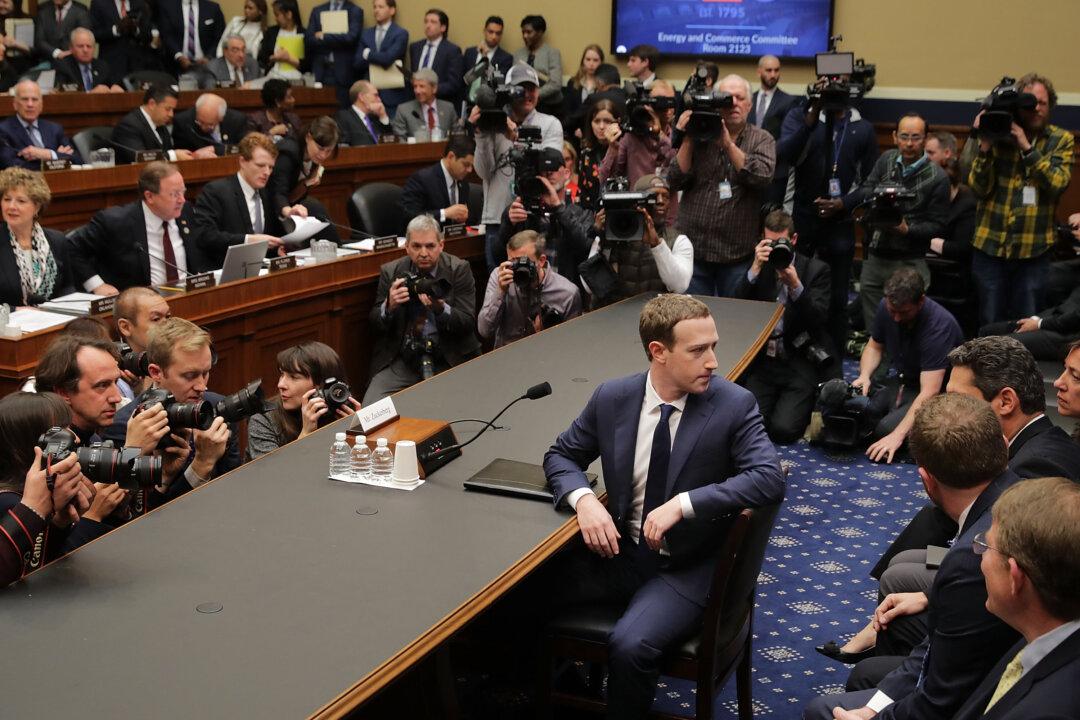Giant tech corporations like Google, Facebook, and Twitter have faced government scrutiny and losses in the stock market in 2018. Yet more uncertainty awaits as they finish the year committed to policing their users’ behavior ever more strongly—up to a standard that may prove to be untenable.
After having their executives grilled in three congressional hearings over bias, privacy, and ”Russian bots,” the companies finished the year with their stocks in a slump. Twitter and Google were down about 20 percent compared to their 2018 peaks, a decline mirroring the broader market. Facebook, on the other hand, crashed by some 40 percent, wiping out the gains of nearly two years.





